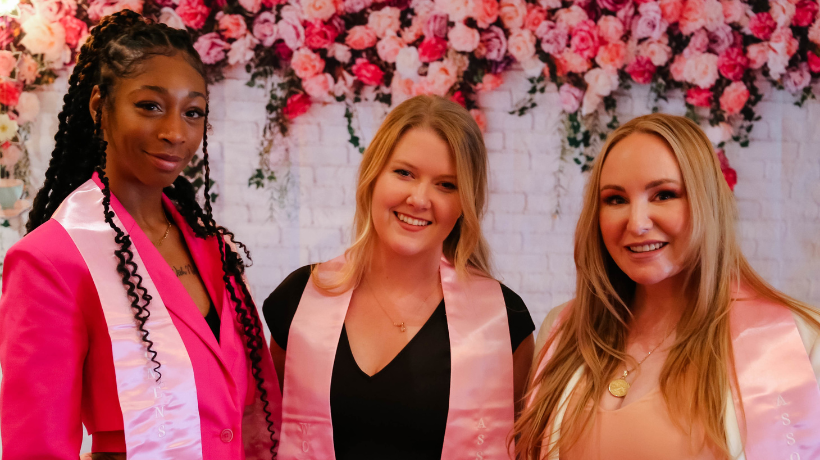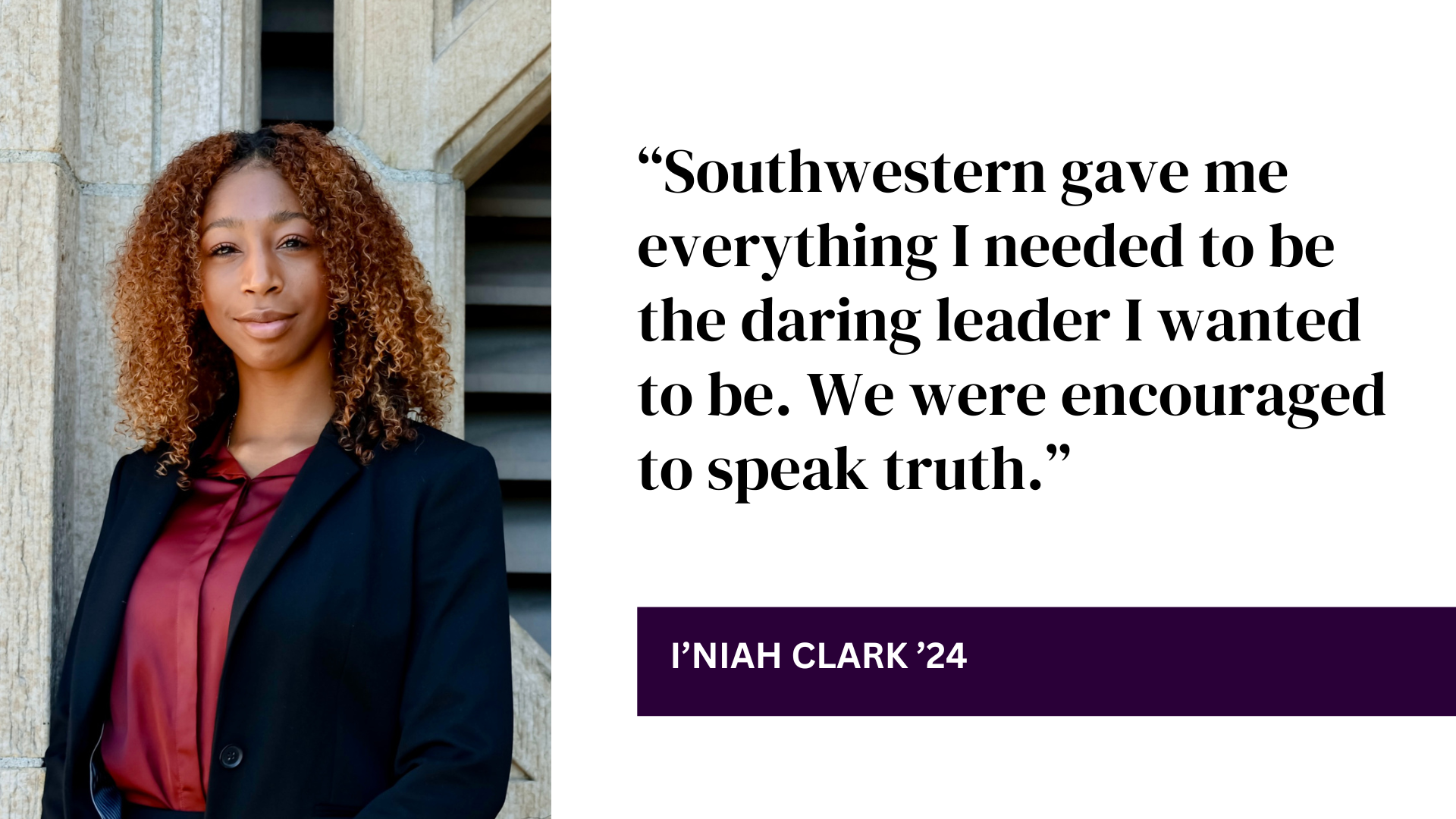SWLAW Blog

May 27, 2025
Three Law Students, One Legal Loophole, and a Fight for Reproductive Justice
After Dobbs, a trio from Southwestern Law School built a legal reform campaign from scratch—and helped shape California’s new ethics rules.
On the morning the Supreme Court overturned Roe v. Wade, I’niah Clark ’23 was scrolling through her phone when the alert came in. A text from a classmate read: It’s done. Another asked: What happens to us now?
Clark sat frozen. “This was no longer something I read about in history books,” she said later. “It was my reality.” With reproductive rights abruptly erased at the federal level, she and two fellow officers in Southwestern Law School’s Women’s Law Association—Jenna Myers Karvunidis '23 and Christy Thomas '23—jumped on Zoom. What began as a processing session quickly shifted into legal triage.
The question they couldn’t shake: if reproductive care was legal in California but banned elsewhere, could lawyers here be punished—disbarred even—for advising clients across state lines?
A Legal Response Takes Shape
Within days, the three had launched the Overarching Reproductive Law Project, or ORLP. They recruited more than two dozen classmates to comb through attorney discipline rules in all 50 states. Drawing on legal ethics coursework and guidance from mentors like appellate lawyer Laurie Taylor, the students zeroed in on the professional vulnerability of lawyers—especially in red states—who advised on lawful reproductive or gender-affirming care.
Karvunidis, the mother of three daughters, felt the urgency in her bones. “If the system has blind spots,” she said, “we have to fix them. Because if not us—then who?”
The team worked methodically, using California’s “shield laws” for doctors and cannabis providers as analogues.
Finding a Foot in the Door
A turning point came in fall 2022, when Karvunidis noticed a post on the State Bar of California’s Instagram announcing public comment on proposed Rule 8.3—the so-called “snitch rule,” which would require lawyers to report serious colleague misconduct.
“I stopped in my tracks,” she recalled. “We hadn’t been heard up until then. This was our chance to get the Bar’s attention.”
ORLP submitted a detailed 14-page public comment. It argued that without protections, the rule could expose California lawyers to discipline for lawful reproductive rights advocacy—especially if other states tried to treat that advocacy as unethical. In May 2023, the State Bar adopted Rule 8.3 with a new subsection (c), exempting attorneys from mandatory reporting when their conduct is legal under California law.
“The carve-out isn’t perfect,” Karvunidis said. “But it was a huge leap to have the State Bar finally recognize the issue.”
From Rulemaking to Lawmaking
From there, the group aimed higher. Working with WLALA, reproductive health scholars like UCLA’s Lara Stemple, and an experienced bill drafter who asked not to be named, ORLP helped shape a legislative proposal: AB 715, the California Attorney Protection Act. The bill would prevent California from imposing “reciprocal discipline” on attorneys who are punished in other states for work that is legal here. Assemblymember Rick Chavez Zbur introduced the measure in early 2024; its first committee hearing is expected this summer.
Karvunidis remained active in WLALA’s advocacy around the bill. Clark stayed involved through the drafting process. “We approached the situation one step at a time,” Clark said. “I stayed grounded by considering what was at stake—and recognizing that we had the resources to get it done.”

Building Legal Careers, Not Waiting for Them
All three founders have now entered practice. Karvunidis is a Housing Justice Fellow at Inner City Law Center, building on her prior work in the Eviction Defense Clinic. Clark began as Legal Operations Manager at Johnstone Supply in fall 2023 and was promoted to Corporate Counsel in spring 2025, where she now negotiates high-value contracts and leads legal training across departments. Thomas focuses on real estate law.
Still, all remain involved with ORLP and are helping shepherd AB 715 through Sacramento. “We’ve taken it one bite at a time,” Karvunidis said. “We’re not relitigating abortion—we’re fixing a professional gap.”
Clark puts it more personally: “Southwestern gave me everything I needed to be the daring leader I wanted to be. We were encouraged to speak truth—even if we were the minority view.”
And Karvunidis is proud of what their law school represents. “I don’t care what anyone says about California law school rankings. Southwestern students paved the way. I think that speaks for itself.”